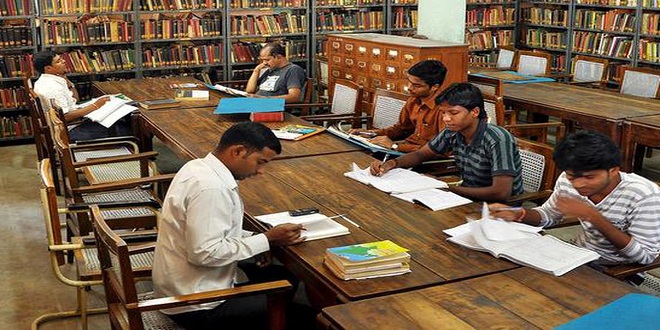Major Hurdles in Exam for UPSC Aspirants

Do you have an ambition (along with lakhs of others, if I may add) of becoming a civil servant or diplomat and serving the country with your talent and capabilities? It takes sincere hard work and meticulous preparation to crack what is possibly the toughest competitive exam in the country. You have to cross various hurdles to achieve your dream profession.
Whenever you decide to start something new or move to a new level in life, you will face several problems, and it is common for anyone who is seeking any transition. Hence, in this article, we are highlighting the major hurdles that aspirants face while they decide to start their preparation for UPSC Exams.
5 Main Hurdles in UPSC Exam Preparation
● Number 5 – Fear of failure
The UPSC exam requires patience and persistence, and very few aspirants are able to keep the two and get through the Civil Services Exam on the first attempt. Aspirants are always in doubt whether they will be able to crack the UPSC IAS examination or not? How many years will he take to crack the examination? Backup plans? If not, then what will be next? These negative thoughts come up in their mind because they fear failure. This fear decreases the activity level by creating negative vibes all around. It also harms the self-confidence of the aspirant, even though they are extremely proficient. But understand that the fear is very natural. Therefore, an aspirant should try and build confidence and bounce back.
● Number 4 – Failure to follow the set schedule
Aspirants preparing for the UPSC exam are often confused about following a proper timetable they set as per their convenience at the start of the preparation journey. The timetable is an instrument which helps an aspirant to follow a daily routine and help to complete the entire syllabus. Beginners will all have to manage their time accordingly as they may face difficulties related to time. The syllabus for UPSC is vast and diverse. Hence, Aspirants should break this into small parts and try to finish it in the allotted time. The very first thing that an aspirant should do is to start preparing for the Mains examination. Before the Prelims exam, they are expected to complete the main portions of UPSC, as well as their optional subject preparation. The leftover time of 4 months after the Prelims exam should be used for revising and attending mock tests. Throughout that time, the aspirant should also cultivate a hobby which is also a vital element in the interview.
● Number 3 – Choice of optional subject
Choosing an optional subject is another big hurdle in front of CSE aspirants. Most of the candidates find it difficult to choose the optional subject. There are a lot of myths revolving around choosing the optional subject. There is no one subject that can be called the easiest optional subject or the scoring subject. It depends on each aspirant what is easy and what is not. Aspirants should choose their favourite subject of graduation as their optional subject. Also, it is advised to choose the optional subject for Mains well ahead of time so that the candidate will get sufficient time to make a list of books to refer to, collect relevant notes, as well as to form a study group.
● Number 2 – Medium of exam
Another hurdle in front of a beginner is which medium of exam should they choose: Hindi or English or mother tongue? A lot of IAS candidates possess knowledge, information and even analytical ability. But they falter when it comes to expressing their ideas and thoughts, whether orally or through the written medium. UPSC gives the aspirants the opportunity to write the Mains exam in English, Hindi and in their own languages. If the candidates do not have a good command of the English language, they can opt for Hindi or their mother tongue. For this, the aspirant need not excel in the language, but one should be able to convey the idea to the examiner.
● Number 1 – Right guidance and finance
Nailing CSE is a big dream which demands constant hard work and dedication from the aspirants. To start off with the preparation, candidates need a clear idea about the UPSC examination, UPSC syllabus, what to study, how to study, which books to refer to for UPSC preparation, etc. The answer to all these questions is getting the right assistance, the right path and the right guidance to begin their journey, but very few are able to get the right guidance because, for many, it is unaffordable or expensive if they choose expert help. Hence, they land up doing self-study.
Bonus tips for preparation – be it any stage of the coveted UPSC exam, being updated with the latest current affairs is the most important to get through the competition.
Down the lane, having faith in yourself and your abilities is pertinent. Harbouring doubts about your strengths only diminishes them. If you have adopted the right strategy and combined it with intense and steadfast effort, you will get the desired results and find your way into the hallowed UPSC examination.





